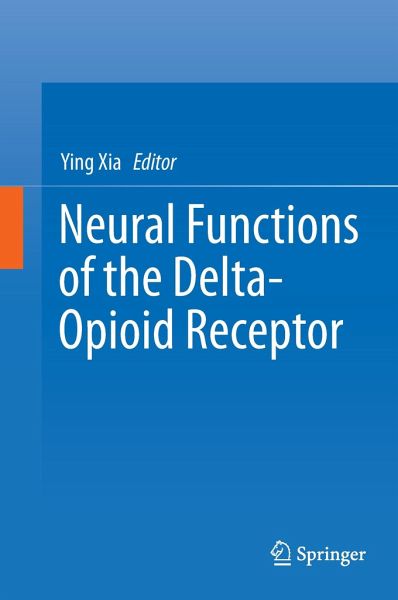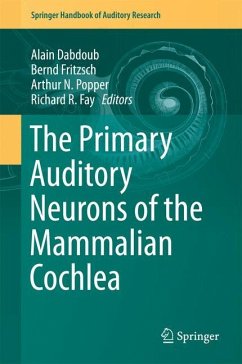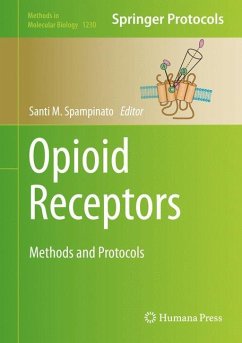
Neural Functions of the Delta-Opioid Receptor

PAYBACK Punkte
58 °P sammeln!
This book is the first to summarize the progress of research on neural functions of the the delta opioid receptor (DOR) to date. This receptor, a member of the opioid receptor family, was traditionally thought to be primarily involved in pain modulation. Recent new findings have shown its unique role in neuroprotection and many other functions. Many scientists from a number of independent laboratories have now confirmed that DOR can provide neuroprotection against hypoxic/ischemic injuries. They have also found that it plays a role in a variety of physiological and pathophysiological events su...
This book is the first to summarize the progress of research on neural functions of the the delta opioid receptor (DOR) to date. This receptor, a member of the opioid receptor family, was traditionally thought to be primarily involved in pain modulation. Recent new findings have shown its unique role in neuroprotection and many other functions. Many scientists from a number of independent laboratories have now confirmed that DOR can provide neuroprotection against hypoxic/ischemic injuries. They have also found that it plays a role in a variety of physiological and pathophysiological events such as hypoxic encephalopathy, epilepsy, acupuncture, Parkinson's disease, etc. by regulating ionic homeostasis, glutamate transportation and signaling, and balancing intracellular survival/death signals. The book will provide a comprehensive overview of the current state of DOR research and provide a blueprint for future directions.














